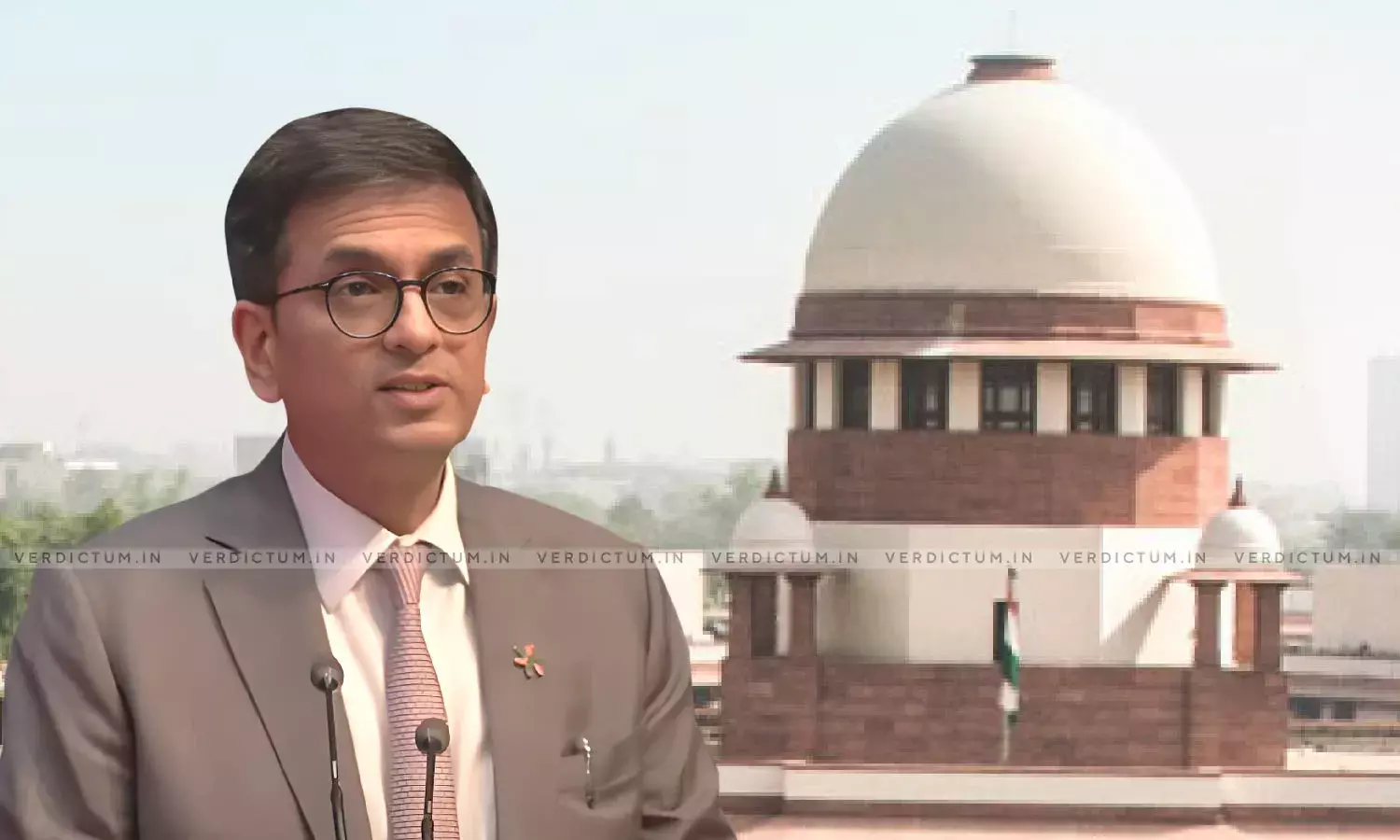Constituent Assembly Was Predominantly A Majoritarian, Male, Upper Caste, Urban Exercise: Chief Justice Chandrachud
Chief Justice DY Chandrachud said on Saturday, while speaking at an event, that the Constituent Assembly was predominantly a majoritarian, male, upper caste, urban exercise, even though it did include a diverse set of members.
“The constituent assembly did include a diverse set of members, but it was predominantly a majoritarian, male, upper caste, urban exercise”, the Chief Justice said while speaking at the event connected to the Justice Keshav Chandra Dhulia Memorial Essay Competition.
Chief Justice also said in his speech that the State must side with the minority who may be the weaker population. He said, “For all citizens to feel free in a democracy, the State must side with the weaker population which may be a numerical or a social minority. This may at first appear to be at odds with the democratic principle of majority rule. However, a mere rule by majority can be established by many forms of government. The beauty of a democracy is the sense of moral status with which all citizens can participate in a country and the consensus in its decision making. In a democracy the majority will have its way but the minority must have its say”.
The Chief Justice also said that members of social minorities who are unlikely to be represented through electoral democracy because of religion, class, sex, or sexual orientation are overrepresented before the Courts in constitutional cases.
Chief Justice Chandrachud said that while deliberation sustains a democracy, dissent nourishes it. “If democracy means that the views of the majority prevail, then it necessarily implies that a deliberating and eventually, a dissenting minority. And this can at times be more powerful than a dumb, unthinking accepting majority, ruled by slogans. A servile and subservient population guarantees a weakened democracy”, he said.
Speaking about the Constituent Assembly, Chief Justice Chandrachud quoted an author to say that the role and contribution of women in the Constituent Assembly are largely subsumed by the dominant quote-unquote “Founding Fathers” narrative.
“Abolition of slavery, annihilation of caste, emancipation of gender minorities, and religious harmony were all once dissenting opinions. However, these dissents hold the power to fundamentally restructure our society by sparking an important conversation. These dissents emerge not from thin air but from a democratic culture of fierce debates”, Chief Justice said.
The Chief Justice was speaking on the subject “Democracy, Debate and Dissent” when he said that “a society which does not encourage its citizens to critically think, question the powers that be, and engage in nonconformist democratic discourse will fail to progress because it will fail to create dissenters”.
A few days back, the Chief Justice had reiterated his call for regulating speech on social media.












